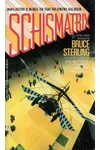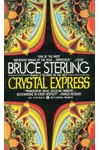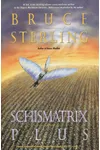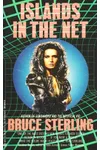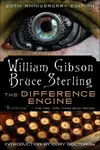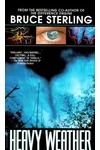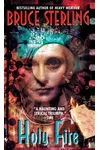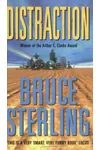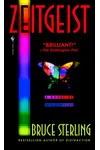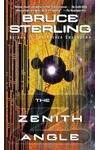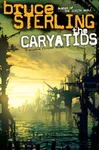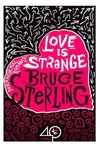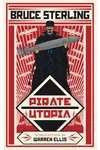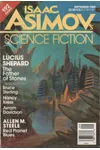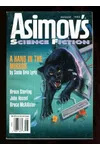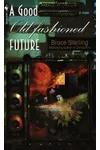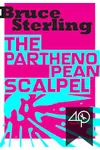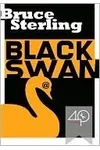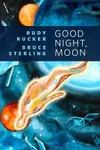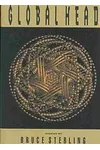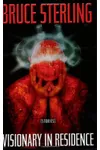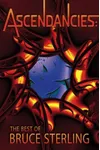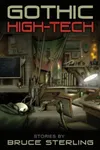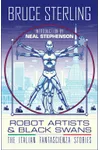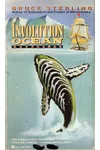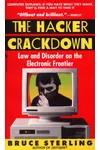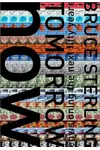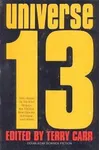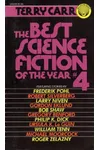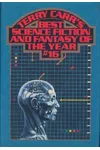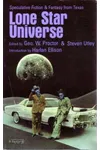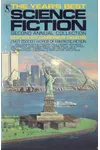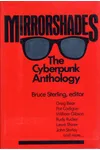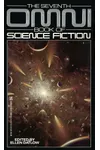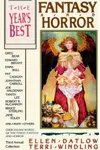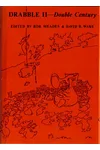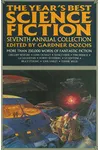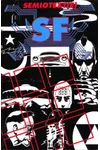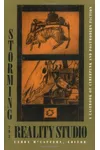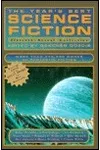Picture a Texas-born visionary who spun tales of high-tech rebels and dystopian futures—meet Bruce Sterling! A pioneer of the cyberpunk genre, Sterling’s sharp wit and prescient storytelling have captivated readers since the 1970s. His novels, like Schismatrix and Islands in the Net, blend gritty tech with societal upheaval, making him a cornerstone of speculative fiction.
Born in 1954, Sterling didn’t just write stories—he shaped a movement. As a journalist, futurist, and editor of the iconic Mirrorshades anthology, he helped define cyberpunk’s rebellious spirit. Ready to dive into a world where hackers and dreamers collide? Let’s explore Sterling’s journey!
The Making of Bruce Sterling
Bruce Sterling was born on April 14, 1954, in Brownsville, Texas, where wide-open spaces and a rancher grandfather sparked his imagination. He graduated from the University of Texas at Austin in 1976, the same year he sold his first sci-fi story, “Man-Made Self.” Influenced by the New Wave science fiction of the 1960s, Sterling was drawn to gritty, human-centered tales over utopian dreams. His early work, fueled by punk’s raw energy, set the stage for cyberpunk’s rise.
In the 1980s, under the pseudonym Vincent Omniaveritas (Latin for “truth conquers all”), Sterling edited Cheap Truth, a fanzine that championed cyberpunk’s bold voice. His knack for spotting cultural shifts and his Texas-sized curiosity made him a natural leader in this literary rebellion.
Bruce Sterling’s Unforgettable Stories
Sterling’s novels are like a high-speed chase through a neon-lit future. His 1985 novel Schismatrix dives into a 23rd-century solar system split between Shapers, who embrace genetic engineering, and Mechanists, who rely on prosthetics. Narrated by the cunning diplomat Abelard Lindsay, it’s a dazzling exploration of identity and power. Islands in the Net (1988) follows Laura Webster, a PR executive caught in a web of corporate espionage and digital warfare, earning Sterling the John W. Campbell Memorial Award.
Heavy Weather (1994) is a thrilling eco-thriller about storm-chasing hackers in a climate-ravaged America, showcasing Sterling’s knack for blending tech and environmental themes. His 1986 anthology Mirrorshades cemented cyberpunk’s legacy, featuring stories from William Gibson and Pat Cadigan. Sterling’s style—sharp, satirical, and packed with “technospeak”—captures the chaos of rapid technological change with a punk rock edge.
Beyond fiction, Sterling’s nonfiction, like The Hacker Crackdown (1992), explores real-world tech culture, from hacker crackdowns to digital freedom. His ability to weave complex ideas into gripping narratives makes his work timeless.
Why Bruce Sterling Matters
Bruce Sterling didn’t just write cyberpunk—he helped invent it. Alongside William Gibson and Rudy Rucker, he crafted a genre that tackled technology’s dark side: corporate control, digital alienation, and societal decay. His foresight about the internet’s impact, explored in works like Islands in the Net, feels eerily prophetic today. Sterling’s global perspective, honed by years living in Belgrade and Turin, enriched his stories with diverse cultural insights.
As a futurist, Sterling coined terms like “design fiction” and “buckyjunk,” shaping how we think about technology’s future. His Hugo Award-winning novelettes “Bicycle Repairman” (1997) and “Taklamakan” (1999) prove his storytelling prowess. Sterling’s legacy lies in his ability to make us question: what does it mean to be human in a world ruled by machines?
- Born: April 14, 1954, Brownsville, Texas
- Key Works: Schismatrix, Islands in the Net, Heavy Weather, Mirrorshades
- Awards: John W. Campbell Memorial Award (1989), Hugo Awards (1997, 1999)
- Notable Role: Professor at European Graduate School (2003–present)
Call to Action: Snag Schismatrix and dive into Bruce Sterling’s electrifying cyberpunk universe! Whether you’re a sci-fi fan or a tech enthusiast, his stories will spark your imagination.
